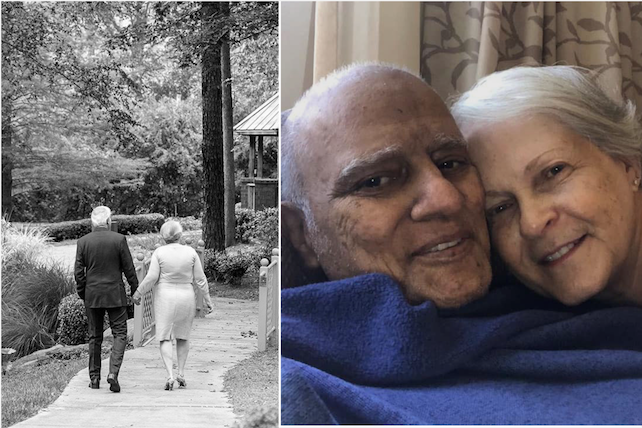God is slandered daily. Satan, who is a liar and the father of lies, makes sure of it. Satan’s lie about God is pervasive. One of his favorite lies to spread about God is that he doesn’t love us, that he wants nothing more than for us to suffer and die.
Satan’s Lie About God
Satan wants us to think that God is more like the elder brother than the father of the parable of the prodigal son. As Thomas Merton said,
“It is the grand design of Satan to lessen our opinion of God’s goodness… He seeks to hide God’s goodness, and to represent him as a God that delights in our destruction and damnation, rather than in our salvation.”
Regrettably, we are easily deceived by this pernicious lie. We are susceptible to it when we are made aware of our own sinfulness or drowning in a sea of our own guilt. We sense that God will not forgive us because of who we are; or because of what we have done; or because we have committed the same sin countless times. The puritan John Ball noted that Satan…
“…will not spare to suggest to the contrite and humbled soul, that God cannot or will not forgive his transgressions, which have been most heinous for quality, many for number, and in which he has long lived and continued.”
We may also be prone to believe Satan’s lie when we reap what we have sown. We may be incarcerated, divorced, sick or unemployed solely due to what we have done. Experiencing God’s providential retribution not only increases our sense of guilt and shame, but may create doubt regarding the mercy and kindness of God. We might wonder: “How could God forgive me, when I cannot even forgive myself?”
Still further, we may be inclined to believe Satan’s lie when we witness or experience God’s wrath upon this rebellious world. The Westminster Shorter Catechism rightly teaches that all the miseries in this life and death itself are part of God’s wrath and curse for sin. The undeniable fact that we will all suffer—to one degree or another—and then die seems to suggest that God is not for us, but against us. How can God be kind, loving and forgiving towards sinners when they all experience his wrath and curse for sin?
Thus, we easily believe Satan’s lie about God, because it appears to be so plausible in this fallen world. It makes sense to us. It seems to fit with the facts. Indeed, it feels right. This is why it is so important to know and believe what God has said about himself and his promises of salvation.
The Bible is quite clear that God is love, and that he will forgive all who call upon him (Ex. 34:6-7; Ps. 86:5; Joel 2:13, 32; John 3:16; Rom. 10:9-13). Psalm 130 says that with God there is forgiveness, steadfast love, and plentiful redemption. Verse 8 says that God will redeem from all iniquities. The promise is not to forgive some sins, or just the small sins, or just the sins you commit once or twice; it is to save from all sins. John Ball rightly said that “the promise of pardon is made to repentant sinners without limitation to any time, person, quality, or number of offences.”
God fulfills his promise to redeem from all iniquities through his Son, our Lord Jesus. He sent his Son, not to condemn the world, but in order that the world might be saved through him (John 3:17). In Jesus, there is redemption, the forgiveness of sins (Col. 1:14). Therefore, whoever believes in Jesus and calls upon his name is forgiven and given eternal life.
Do you believe God or Satan? That is the question, particularly when we feel like God does not love us and when the facts seem to contradict God’s promises. John Calvin astutely observed that…
“…all things around us are in opposition to the promises of God: He promises immortality; we are surrounded with mortality and corruption: He declares that he counts us just; we are covered with sins: He testifies that he is propitious and kind to us; outward judgments threaten his wrath.”
What are we to do?
We are to believe God, regardless of what our feelings or the facts tell us. “Let God be true though every one were a liar (Rom. 3:4).” As Ball wrote:
“…faith is not grounded upon sense and feeling: but upon God’s gracious promises, immutable goodness, and infallible truth… Experience and sense is a stay or prop for our better ease, not the ground upon which our faith leans; and though it be shaken, faith continues firm. If therefore at any time our sense and feeling tell us one thing (namely, that God has cast us off forever, and will never look graciously upon us) and the Word of God assures us of another, to wit, that God does love us, and will never forsake us utterly; we are not to give credit to our own feeling, but to God’s Word.”
What is true of our feelings is also true of the facts. One of the remarkable features of Abraham’s faith was that he believed God despite the presence of profound contrary evidence. God had promised Abraham numerous descendants, as many as the stars in heaven. Yet, Abraham couldn’t have any children because his wife Sarah was old and infertile. Everything in his life seemed to say that God’s promise would not come true. Nevertheless, he trusted God. Paul says that in hope he believed against hope, that he should become the father of many nations, as he had been told. No unbelief made him waver concerning the promise of God, for he was fully convinced that God was able to do what he had promised (Rom. 4).
We are, as Calvin says, in the same condition as Abraham. Although we are forgiven in Christ, we have yet to experience the fullness of our redemption. We still have to wait “for adoption as sons, the redemption of our bodies (Rom. 8:23), and “for the hope of righteousness (Gal. 5:5).” As we wait on God, our feelings and the facts may suggest to us that Satan’s lie is right about God. If they do, we must not listen to them. We need to resist the devil, not by putting our faith in our feelings or in our ability to understand our situation, but by putting our faith in God and in his promises: “in his word I hope (Ps. 130:5).”
We need to trust God who so loved us that he gave his one and only Son, that whoever believes in him should not perish, but have eternal life (John 3:16).
This article about Satan’s lie about God originally appeared here.
















